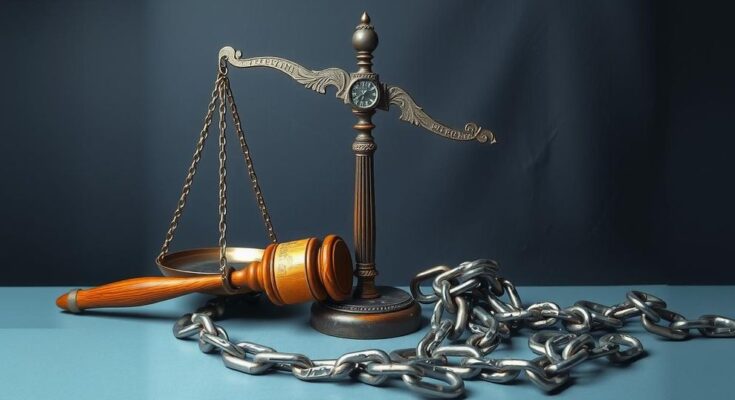Guinea’s pardon of former dictator Moussa Dadis Camara has incited outrage from human rights groups, branding it as an affront to justice. Camara, convicted for crimes tied to the 2009 massacre, was released on health grounds, prompting fears over accountability and impunity in the region. Critics argue this decision undermines justice despite official commitments to victim compensation.
The recent pardon granted by Guinea’s military government to former dictator Moussa Dadis Camara has provoked significant outrage among human rights organizations. They condemned this action as “an affront to justice,” highlighting the potential implications for accountability and transparency in the nation. Camara had been serving a 20-year sentence for crimes against humanity related to the 2009 Conakry massacre when he was pardoned under the pretext of health issues.
Camara’s conviction was associated with his involvement in the brutal suppression of an opposition rally on September 28, 2009, where a UN-supported investigation reported the deaths of at least 156 individuals, with numerous others injured and women subjected to sexual violence. Despite persistent demands for accountability, only 57 bodies have been recovered, indicating that the total number of fatalities may be much higher.
The International Federation for Human Rights (FIDH), along with various local organizations, has voiced their discontent over the pardon, which they believe undermines both national and international commitments to justice. “This decision sends a disastrous signal, showing contempt for justice, accountability, and the fight against impunity,” remarked Drissa Traore, Secretary General of FIDH.
While junta leader General Mamadi Doumbouya has pledged to offer compensation to massacre victims following the 2021 coup, many critics assert that these efforts are rendered ineffective by the premature release of Camara. His previous appeals for leniency had been unsuccessful, raising further questions regarding the junta’s commitment to justice and human rights.
In summary, the pardon of Moussa Dadis Camara has sparked condemnation from human rights advocates who view it as a serious breach of justice principles. The ramifications of this decision reflect broader concerns regarding accountability in Guinea, particularly in light of the tragic events of 2009. Organizations emphasize the need for upholding justice, warning that the pardon could foster a climate of impunity despite calls for reparative action for victims.
Original Source: newscentral.africa




